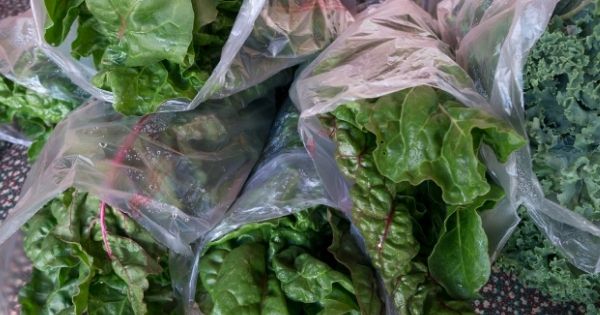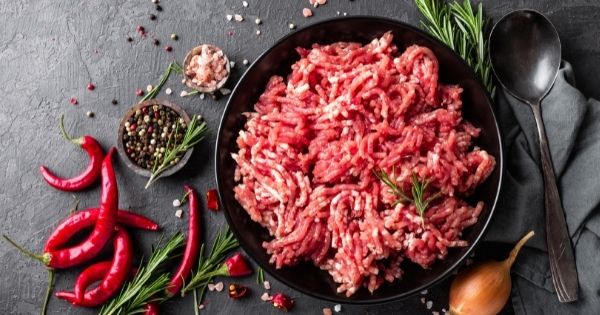You can get various types of poisoning from certain raw, unpasteurized or spoiled foods that can make you very ill. But which foods are more likely to give you food poisoning? Here are 10 foods that can give you food poisoning that you might find surprising. One can never be too careful when it comes to healthy eating habits..

Foods That Can Give You Food Poisoning
Sprouts
Sprouts are seeds that sprouted and lightly cooked or raw sprouts, particularly alfalfa and clover have been the main culprits for multistate food poisoning outbreaks since 2006. The humid and warm conditions that are nurturing for sprouts also promote listeria, E.coli, and salmonella. Many people like to toss a few fresh raw sprouts into their salads or onto sandwiches but it is essential to wash them properly to kill any lurking germs.
Eggs
Thousands of people end up in the emergency room every year due to salmonella-tainted eggs that cause food poisoning and sometimes fatalities. Chickens can pass salmonella onto eggs before the shell is formed. The eggs can also get infected by bacteria through poultry manure. Refrigerate eggs before use at 40F or below.
Flour
Most people are unlikely to eat raw flour, however, they use it in cake batter or cookie dough. In rare cases, raw flour can contain E.coli from the harvesting, grinding, and sifting processes. Bleaching the flour will not kill E.coli which causes vomiting, diarrhoea, kidney failure, and even fatalities. Packaged cake mixes or prepared cookie dough can also be harbouring germs.
Bagged Lettuce
A primary culprit of food poisoning is fresh salads but the exact cause is tricky to establish. Some outbreaks are attributed to using greens such as spinach or romaine lettuce, specific packers or growers, while other bacteria is traced to dirty water, irrigation, human hands, or soil. Germs multiply in the cut leaves juice and are trapped inside the sealed bags. They can stick to leaves even after rinsing.

Raw Milk
Raw milk is one of the most toxic sources of foodborne sickness and is banned in some states. It is milk from animals that is not pasteurized or heated to kill bacteria. Raw milk can contain listeria, salmonella, E.coli, and campylobacter. They can cause vomiting, diarrhoea, and severe illness like Guillain-Barré syndrome that causes paralysis.
Chicken
Chicken is the number one type of meat that leads to numerous cases of food poisoning. Chickens harbour bacteria in the gut and pathogens like salmonella and campylobacter get into chickens during processing and packaging which is then transferred to cutting boards and utensils. You should not wash raw chicken since the contamination can spread to your kitchen. Rather cook chicken at the appropriate heat to kill the bacteria.
Raw Milk Cheese
Consuming soft cheeses that are made from raw milk is a lot more risky than pasteurized cheese. You are much more prone to get listeria with cheeses like camembert, queso fresco, blue-veined varieties, brie, and feta. Listeria spreads further than your gut and can cause loss of balance, headaches, and convulsions. It can also cause miscarriage, premature delivery, and stillbirth. Even your newborn baby can get listeria from you.
Pre-Cut Melon
Each year, around 1.35 million individuals in the US contract salmonella of which almost 27 000 are hospitalized. Infections tend to spread during summer when many people enjoy cantaloupe, watermelon, and honeydew melon. The vines grow in the ground where germs can get onto the rinds. The surface is hard to sanitize and pre-cut melons can spread listeria, norovirus, and other toxic agents. The best way to avoid this is by using washed whole melons. Pre-cut fruits must be refrigerated or packed in ice.

Ground Beef
Undercooked patties that were sold at fast-food chains made over 700 children and adults sick with E.coli in the 1990s of which four people died. E.coli is a predominant culprit causing food poisoning. The bacteria is found naturally in animals and humans. That is why steaks must be roasted from the inside in temperatures of 145F and pork and beef at 160F to be considered safe.
Hot Dogs
Hot dogs are precooked and are a staple in most households. They can however contain listeria that was transferred during packaging. To prevent this illness, it is best to always reheat them before consumption.
Conclusion
You can get food poisoning from twenty minutes to six days after eating a meal. And it is not always the last food item that you’ve eaten that makes you sick. Foodborne illness must be taken seriously because thousands of people end up in hospital each year. Always practice caution when you use these ten foods that can give you food poisoning.
Wash surfaces and your hands often and separate foods to prevent cross-contamination. Keep cold foods cold and hot foods hot. Remember food poisoning is an invisible threat. You cannot smell or see viruses and germs the same way that you can smell or see spoiled foods.
 Kaboutjie SA Mommy Blogs by Lynne Huysamen
Kaboutjie SA Mommy Blogs by Lynne Huysamen





I’m currently pregnant and recently had a very puzzling food poisoning episode. I was completely baffled and could not figure out where I might have been in contact with contaminated food…
This article highlighted a few unsuspected suspects.. Very helpful!
I’m so sorry you have been ill, food poisoning is no joke!